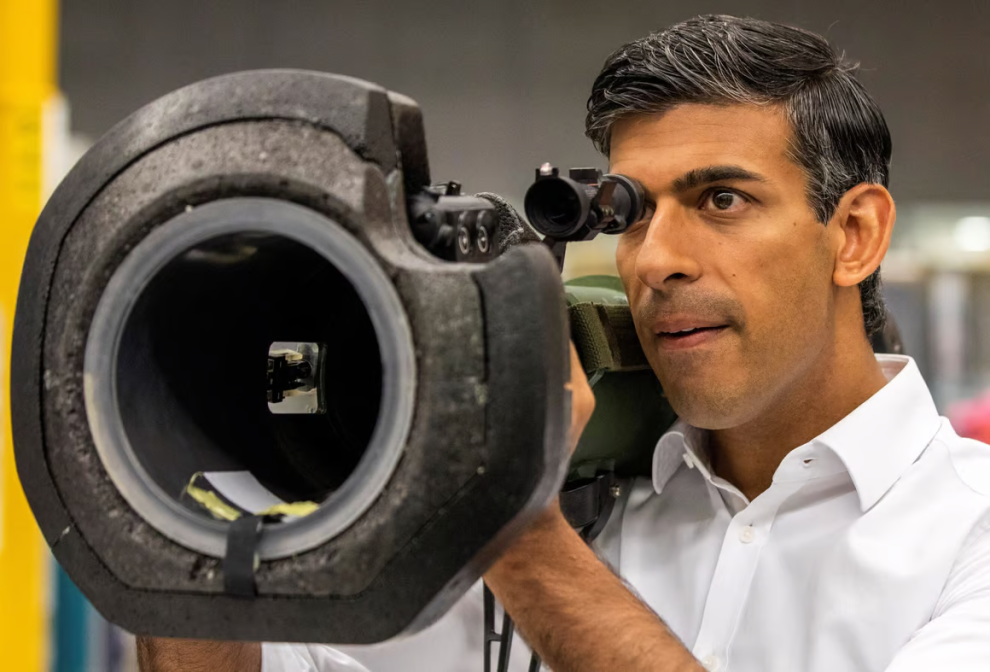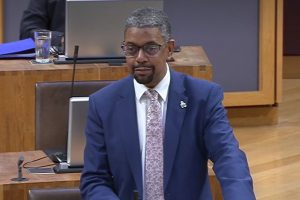Rishi Sunak has pledged billions more for defence to counter threats from what he terms as an “axis of authoritarian states”. The Prime Minister has announced that UK military spending will increase to 2.5% of national income by 2030, building upon a previous spending commitment. He emphasised that although the UK is not on the brink of war, the additional funds would ready the country’s defence industry for heightened preparedness.
Labour has also committed to a 2.5% target, subject to economic conditions permitting. Mr Sunak made this announcement regarding defence during a visit to Poland, where he highlighted that the UK is confronting the most precarious international situation since the Cold War era.
The increased investment is deemed necessary due to the emergence of what Sunak terms as an “axis of authoritarian states” with differing values from those of the UK, including Russia, Iran, North Korea, and China. He argues that these countries are displaying a “new assertiveness” and are increasingly collaborating.
While representing a notable rise in UK defence spending, this allocation will not alter the size of the UK armed forces or reverse cuts to the army’s size. Defence sources indicate that this funding will enable the UK to bolster its ammunition reserves, particularly artillery shells and missiles, a lesson learned from the conflict in Ukraine where many NATO nations faced shortages swiftly.
The additional funding will also support ongoing Ministry of Defence programmes, such as the procurement of new frigates, the development of a new fighter jet, and the modernisation of Britain’s nuclear weapons systems. These programmes, however, are proving costly, and the MoD has struggled to meet its financial requirements with existing resources.
Apart from the practical implications, this funding announcement holds political significance, particularly in anticipation of a general election. The Conservatives have now set a specific date for this spending commitment, although its continuity hinges on their tenure in power.
According to Downing Street, spending will incrementally increase over the next six years, reaching £87.1 billion by 2030, £7 billion higher than if spending remained at the current level of 2.3% of GDP. The plans will not lead to increased borrowing, with Mr Sunak’s spokesperson indicating that they will be funded through existing plans to downsize the Civil Service and by allocating a portion of the already-announced increase in government research spending to the MoD.
Ben Zaranko, an economist at the Institute for Fiscal Studies, suggests that this implies the additional spending will come from cuts to departments with unprotected budgets. Former Defence Secretary Ben Wallace also suggests that the extra funding will result from a “reprioritisation of the pie”.
Labour’s Shadow Defence Secretary John Healey insists on a fully funded plan to reach the 2.5% target but expresses scepticism about the Tories’ reliability on defence matters. He asserts that Labour would review armed forces resources within a year of assuming office if victorious in the upcoming general election.
Mr Sunak suggests that the new 2.5% target could set a new standard for NATO, whose target for member states to spend 2% of GDP on defence is now a decade old. According to NATO data, the UK spent 2.07% of GDP on defence last year, with an estimate of 2.3% for this year, including resources allocated to Ukraine.
Poland currently leads NATO members in defence spending as a share of its economy, allocating 3.9% of GDP, more than double its expenditure in 2022. The US follows closely, spending 3.5%, though it remains the largest spender overall.
The announcement follows Mr Sunak’s confirmation that the UK would provide an additional £500 million for Ukraine this year, in addition to the £2.5 billion already earmarked. He affirms the UK’s commitment to sustain at least the current level of military support to Ukraine for as long as necessary.
The government has faced mounting pressure to increase defence spending since the March Budget, which did not allocate additional funds to the Ministry of Defence. Conservative MPs and ministers have been vocal in advocating for increased spending.
This new commitment echoes a pledge made by former PM Boris Johnson in 2022 to raise spending to 2.5% of GDP by the end of the decade. Mr Sunak, during his unsuccessful Tory leadership bid in the same year, refrained from restating this target, instead committing only to the 2% NATO minimum.
NATO has been urging its members to increase spending, with Secretary General Jens Stoltenberg commending the UK for leading by example. The government has faced criticism for lacking a credible plan to fund the MoD, with concerns raised about a significant financial shortfall despite substantial injections of funds in recent years.


















